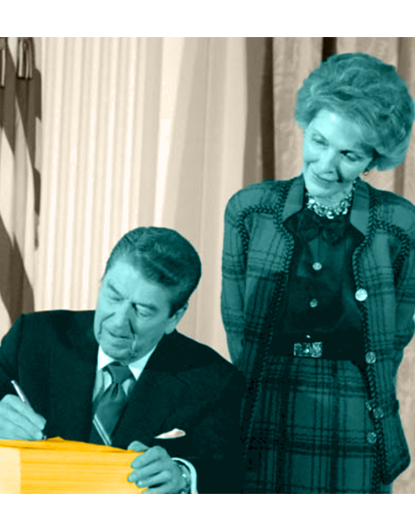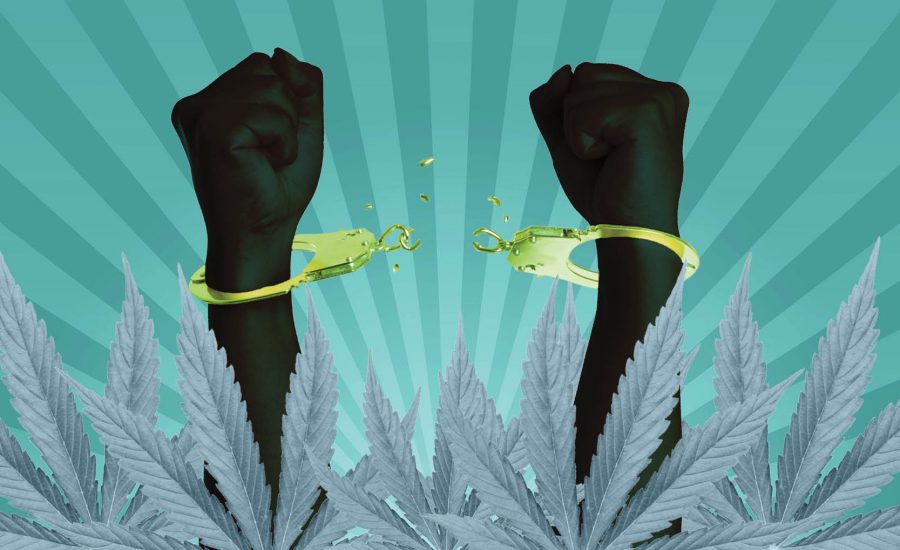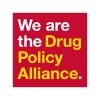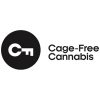Written by Katelin Edwards, Luke Ewing, & Watson Mulkey
![]()
The murder of George Floyd has amplified and renewed conversations about race relations in the United States and abroad. While the cannabis industry has been discussing social equity since long before the current unrest, we have not been seeing the results we want. And in a time where everyone recognizes the need to try harder, for the cannabis industry, that includes looking at the efficacy of social equity programs. Due to the injustices of criminalization, cannabis industry members have a unique responsibility in correcting the wrongs of the War on Drugs that targeted people of color.
The War on Drugs, Black America, and Cannabis Legalization
It is impossible to address inequities in the cannabis industry, especially as it relates to the black community, without starting with the “War on Drugs,” declared by President Nixon in June 1971. This “war” involved dramatically expanding the size and presence of federal drug control agencies, and enacting controversial measures that evolved to include mandatory sentencing and no-knock warrants all in hopes of eroding the black community and weakening the anti-war left.
 Although Nixon ultimately resigned as president, the crusade against drugs continued far beyond his controversial presidency. As president, Ronald Reagan expanded the drug war, causing rates of incarceration to skyrocket. Furthermore, when President Reagan took office in 1981, his wife, Nancy Reagan, kicked off her “Just Say No” anti-drug campaign. Public dismay for illegal drug use continued to build throughout the 1980s thanks largely to media portrayals of people addicted to the smokable form of cocaine dubbed “crack.” This led to zero-tolerance policies and severe penalties related to both drug distribution and use. Despite President Bill Clinton championing drug treatment instead of incarceration during his 1992 presidential campaign, he defaulted to some of the same strategies and policies that only escalated the war on drugs. For example, President Clinton rejected a U.S. Sentencing Commission recommendation to eliminate the inconsistencies between crack and powder cocaine sentences. He also signed into law the 1994 Violent Crime Control and Law Enforcement Act, a massive crime control bill that many see as having destroyed black and brown communities and expedited mass incarceration.
Although Nixon ultimately resigned as president, the crusade against drugs continued far beyond his controversial presidency. As president, Ronald Reagan expanded the drug war, causing rates of incarceration to skyrocket. Furthermore, when President Reagan took office in 1981, his wife, Nancy Reagan, kicked off her “Just Say No” anti-drug campaign. Public dismay for illegal drug use continued to build throughout the 1980s thanks largely to media portrayals of people addicted to the smokable form of cocaine dubbed “crack.” This led to zero-tolerance policies and severe penalties related to both drug distribution and use. Despite President Bill Clinton championing drug treatment instead of incarceration during his 1992 presidential campaign, he defaulted to some of the same strategies and policies that only escalated the war on drugs. For example, President Clinton rejected a U.S. Sentencing Commission recommendation to eliminate the inconsistencies between crack and powder cocaine sentences. He also signed into law the 1994 Violent Crime Control and Law Enforcement Act, a massive crime control bill that many see as having destroyed black and brown communities and expedited mass incarceration.
Meeting Social Equity Promises
As cannabis legalization spreads across the country and becomes more widely accepted — to the point of being designated an “Essential Service” during the COVID-19 pandemic; the opportunity disparity inherent in the industry has become more apparent as well. Many cannot wrap their heads around the idea that those privileged enough to overcome the numerous financial and regulatory barriers to entry in the cannabis industry are now legally profiting off of the same plant and practices that put poor and disadvantaged people — the overwhelming majority of whom were people of color — in prison for many years. Even today, many people are still serving time in jail for non-violent drug charges, despite local governments designating cannabis as legal, and cannabis workers as “essential.”
In an effort to address the industry’s racial disparities, many states and localities have implemented social equity programs as part of the licensing program and regulatory scheme.
The concept behind social equity as it relates to cannabis law is allowing those who have been adversely impacted by cannabis — such as those arrested for cannabis-related crimes or living in communities disproportionately impacted by the War on Drugs — to more easily participate in the cannabis industry. However, most of these social equity programs have struggled and faced criticism for being ineffective. One reason for the lack of success in these programs is the “pay-to-play, greatest barrier to entry” model for establishing legal markets that many states seem to adopt.
Barriers to Entry
Due to the infancy of the cannabis industry and its regulated nature, barriers to entry play a major role in participation in the cannabis industry. Common barriers to entry in the cannabis industry include:
- High application fees
- Excessive taxes
- Compliance complexities
- Supply constraints
- High start-up costs
- Exclusive contacts
- High capital requirements
 These barriers to entry force black and brown aspiring cannabis entrepreneurs to either take on wealthy equity partners or to deplete their savings during the burdensome licensing process, only to enter a heavily taxed, highly regulated market that is rapidly consolidating into a monopolized state. Additionally, practices like redlining, which was banned in the ‘60s and ‘70s for being racially discriminatory, but whose effects are still being felt 50 years later, have kept people of color from creating the same degree of generational wealth as their white counterparts, partly due to the inability of black families to pass down wealth created through real estate ownership. These obstacles, combined with the lack of small business loans available to those seeking to start a cannabis company, make securing funding to operate in the legal cannabis market nearly impossible, especially for people of color.
These barriers to entry force black and brown aspiring cannabis entrepreneurs to either take on wealthy equity partners or to deplete their savings during the burdensome licensing process, only to enter a heavily taxed, highly regulated market that is rapidly consolidating into a monopolized state. Additionally, practices like redlining, which was banned in the ‘60s and ‘70s for being racially discriminatory, but whose effects are still being felt 50 years later, have kept people of color from creating the same degree of generational wealth as their white counterparts, partly due to the inability of black families to pass down wealth created through real estate ownership. These obstacles, combined with the lack of small business loans available to those seeking to start a cannabis company, make securing funding to operate in the legal cannabis market nearly impossible, especially for people of color.
Furthermore, in a cruel display of irony, having a history or prior record of arrests, convictions, or jail time for cannabis-related charges remains a barrier to entry in all legal cannabis markets. According to the ACLU, nationwide, black people are 3.6 times more likely than white people to be arrested for cannabis, despite similar usage rates. While our home state of Colorado boasts the lowest rate of racial disparity in cannabis possession arrests, black individuals are still 1.5 times more likely than white people to be arrested for a marijuana offense. In some states (Montana and Kentucky) it’s as high as 9.6x.
Comparing and Contrasting Current Social Equity Programs – California, Illinois, and Massachusetts
While many states and localities with legal cannabis markets have incorporated social equity provisions in their licensing programs, it has become clear that, while each has yielded results to varying degrees, none of them have been entirely successful. Comparing and contrasting a handful of these programs allows us to study the failures and successes of each program in hopes of understanding what will ultimately be necessary in order to provide an equal opportunity to those who deserve a seat at the table.
California
California has a social equity program in place at the state level to help local governments with equity ordinances to provide loan, grant and technical assistance to minorities and economically disadvantaged individuals in the cannabis industry, either as business owners or employees. At the local level, major cities such as Los Angeles, San Francisco, Oakland, and Sacramento, have taken it upon themselves to also implement social equity programs, also to varying levels of success. Los Angeles’ program was dubbed by former NBA star Al Harrington as a “complete disaster,” that has so far resulted in only six of the 200 cannabis dispensaries licensed in Los Angeles being black-owned and an online licensing system riddled with error messages and glitches.
 On the other end of the spectrum is Oakland, whose social equity program has been widely regarded as successful. Jessie Grundy, CEO of The Peakz, the largest social equity brand in the country, credits Oakland’s social equity program for his triumph. When we spoke to Jessie, he told us that Oakland’s program not only allowed him to get his license, but provided the funds to truly compete in the cannabis space. Aspects of Oakland’s social equity program success include:
On the other end of the spectrum is Oakland, whose social equity program has been widely regarded as successful. Jessie Grundy, CEO of The Peakz, the largest social equity brand in the country, credits Oakland’s social equity program for his triumph. When we spoke to Jessie, he told us that Oakland’s program not only allowed him to get his license, but provided the funds to truly compete in the cannabis space. Aspects of Oakland’s social equity program success include:
- Requiring that half of all permits be issued to equity applicants.
- Only issuing permits to those who have a cannabis conviction or have lived in places that have been identified as the neighborhoods that have been most affected by the War on Drugs.
- Rewarding general applicants that provide free space and “incubate” equity applicants.
- Requiring that the general applicant provide an equity applicant with three years of free rent and have access to a minimum of 1000 square feet to accommodate business operations and any required security measures.
- Instructing equity applicants to show an annual income at or less than 80% of the 2018 Oakland Average Medium Income (AMI) thresholds.
Massachusetts
According to the Massachusetts regulatory agency, the Cannabis Control Commission (CCC), “the Commission is committed to an industry that encourages and enables full participation by people from communities that have previously been disproportionately harmed by marijuana prohibition and enforcement.” As part of this commitment, the CCC has put in place the “Certified Economic Empowerment Priority Applicant” program, which grants priority review to applicants who demonstrate three of the following criteria:
- The majority of ownership belongs to people who have lived in areas of disproportionate impact for 5 of the last 10 years.
- The majority of ownership has held one or more previous positions where the primary population served were disproportionately impacted, or where primary responsibilities included economic education, resource provision, or empowerment to disproportionately impacted individuals or communities.
- At least 51% of current employees/subcontractors reside in areas of disproportionate impact, which will increase to 75% by the first day of business.
- At least 51% of employees or subcontractors have drug-related Criminal Offender Record Information (CORI) but are otherwise legally employable in a cannabis-related enterprise.
- A majority of the ownership is made up of individuals from Black, African American, Hispanic, or Latino descent.
- Owners can demonstrate significant past experience in or business practices that promote economic empowerment in areas of disproportionate impact.
To date, no applicants to the Economic Empowerment program have received final business licenses despite it being four years since the state legalized cannabis and two years since legal sales began. Many applicants are questioning what about this review is “priority,” as they lose hundreds of thousands of dollars in earning potential and rent payments on their proposed cannabis business location.
Illinois
 The State of Illinois has entitled its social equity program “R3.” Not to be confused with a Star Wars robot, R3 stands for Restore, Reinvest, and Renew. While there was confusion and contention in Chicago over the terms of legalization, the R3 program is now being touted as the gold standard for states seeking to address social equity in their legalization and licensing efforts. On June 2nd, the state announced funding opportunities to support (R3) programming in historically underserved communities across Illinois. A total of $31.5 million collected from cannabis tax revenue will be distributed to nonprofit organizations, local municipalities, and tax-exempt faith-based organizations in the form of grants. R3 grants fund programs in five areas:
The State of Illinois has entitled its social equity program “R3.” Not to be confused with a Star Wars robot, R3 stands for Restore, Reinvest, and Renew. While there was confusion and contention in Chicago over the terms of legalization, the R3 program is now being touted as the gold standard for states seeking to address social equity in their legalization and licensing efforts. On June 2nd, the state announced funding opportunities to support (R3) programming in historically underserved communities across Illinois. A total of $31.5 million collected from cannabis tax revenue will be distributed to nonprofit organizations, local municipalities, and tax-exempt faith-based organizations in the form of grants. R3 grants fund programs in five areas:
- Civil legal aid
- Economic development
- Reentry
- Violence prevention
- Youth development
Furthermore, social equity applicants will receive additional points on their scored applications to operate a cannabis business, as well as financial assistance from the state, including access to low-interest loans and discounted application fees. On top of this, Illinois made the unprecedented move to automatically expunge marijuana records in the state. Most expungement/sealing programs require each person to individually apply for expungement, but in Illinois, the state took the lead and has reviewed all marijuana records in order to proactively get them expunged.
The Future of Social Equity in Cannabis and Righting History’s Wrongs
The two easiest steps states can take to correct social equity failures in the cannabis industry include minimizing barriers to entry as much as possible and implementing automatic expungement for all marijuana offenses. Fully automating the process guarantees that all eligible persons have their records cleared.
In addition to the changes states can make regarding licensing programs and regulatory schemes, individuals within the cannabis space can also make different choices to further the quest for social equity in the industry. Of primary importance is choosing to educate oneself on the history of cannabis prohibition and its harmful consequences. Furthermore, those in the cannabis space must choose to become involved in advocacy and community outreach in order to raise awareness, build relationships, and participate in the process of policy, politics, and legislation. Those of us in the industry must hold states and localities accountable for enacting efficient and effective social equity programs that decrease, or altogether erase, barriers to licensing and success in this industry. And lastly, individuals and organizations can choose to support minority-owned cannabis businesses and organizations whose missions are to support minorities in the cannabis industry.
Organizations supporting social equity initiatives in the cannabis industry include:
- Minority Cannabis Business Association – the first non-profit business league created to serve the needs of minority cannabis entrepreneurs, workers, and patients/ consumers.
- Minorities for Medical Marijuana – focused on providing advocacy, outreach, research, and training as it relates to the business, social reform, public policy, and health/wellness in the cannabis industry.
- The Drug Policy Alliance – an organization seeking to advance policies and attitudes that reduce the harms of both drug use and drug prohibition.
- Cage-Free Cannabis – helps the cannabis industry and its consumers repair harms of the War on Drugs.
- Humble Bloom – connects diverse communities through cannabis plant education, advocacy, and inclusive and comprehensive experiences.
- The Last Prisoner Project – a nonprofit coalition of cannabis industry leaders, executives, and artists dedicated to bringing restorative justice to the cannabis industry.






